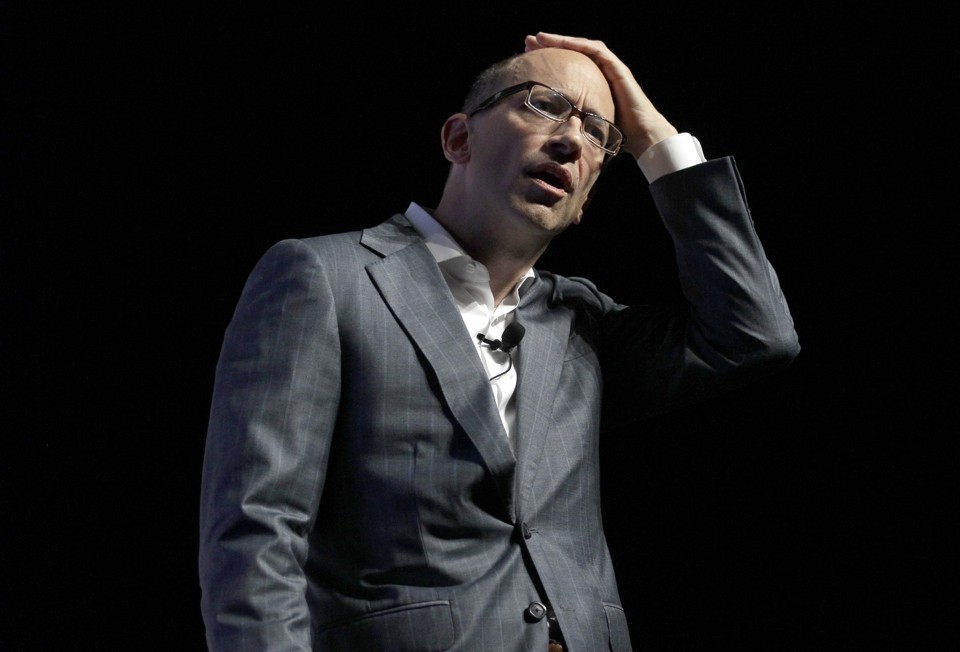Twitter's Costolo Years: An Annal of Missed Opportunities
Geege Schuman stashed this in Twitter
Stashed in: Twitter!, @jack, Awesome, @sacca, @dickc
That is a great photo, Geege. So what did you learn from the article?
The fail point:
Twitter has, however, been widely embraced by two industries: journalists and marketers. Journalists have made it integral to the news cycle, the place to go for first-person sources and photos of any event. Marketers like it because it is a simple, cheap way to reach a mass audience anytime, anywhere. Neither of these two groups, though, create the sort of user who keeps people actually coming back: someone’s friends.
I'm not sure I agree with that. Every day I go looking for great things journalists have written.
And every day I look for content from brands I care about such as Game of Thrones.
Every day you're hustling?!
Funny, I thought that was LMFAO who sings that.
What did Costolo accomplish during his five years?
The headline is: He took Twitter public, a messy process that created a lot of wealth for bankers and some of its early investors. To his credit, he also continued its advocacy for freedom of speech. Twitter, alone among social networks, does not take down content when ordered to by a national government but merely blocks it from being seen in that country. It also publishes some of the best, most exhaustive data about the government requests—censorship, copyright, or user data-related—it receives.
What Twitter did badly: It destroyed its developer community and failed to protect users from threats.
Twitter seemed, almost systematically, to frustrate those who saw themselves as the company’s allies—or, at least, its most loyal users. After encouraging developers to build applications around the service for many years, it altered who could access its data, creating an atmosphere of instability for any third-parties who thought about investing time improving its service. For years, too, it barely addressed the rampant abuse that people—and women in particular—face on the service. This sowed fear and frustration for many of its power users, who could face threats or cat-calls sometimes just for tweeting about movies or video games. (It does not help that seven of Twitter’s eight board members are men.)
...
The more irredeemable loss might be in how the service is perceived. In 2010, Twitter was ascendant, an insurgent peer to Facebook—if anything, it was the kinder, friendlier, more open public square to Zuckerberg’s castle. Its format was hailed as revolutionary, and it was credited with fomenting revolutions. Now Twitter usernames and hashtags are ubiquitous, appearing on the sides of billboards, before every major sports broadcast, in street art, on church pamphlets—even on Facebook. The @-symbol before a username, first seen on Twitter, is the global standard for setting off a username in text.
Yet despite this ubiquity, people are no longer flocking to the service. More than one billion people have signed up for Twitter accounts and never returned.
Lefsetz:
Twitter is a great place to find out what’s happening right now. To read press releases. But it does a bad job of making the results comprehensible to the masses. It’s Alta Vista, and we’re waiting for Google.
If you think Jack Dorsey can save it, you’re unaware of Square. Another product that got left in the dust. Dorsey didn’t realize that starting is only the beginning. That to win you’ve got to deal with or supersede the entrenched elements, like the banks. Square was the small new thing that turned into the small old thing. And in today’s world that’s death. Furthermore, Dorsey’s image has been shattered by the naysayers. He seems to take too much credit, and based on Square’s results the rumors seem true.
So what to do?
Credit Chris Sacca for criticizing the company. This is something we rarely see at established businesses, a ground floor investor questioning management and direction. Everybody at the old company drinks the kool-aid, lines up behind the boss and marches towards the cliff. And then they’re surprised when someone steals their cheese, like in the music business.
Twitter is a feature, not a standalone service. Snapchat moves into entertainment and Twitter can’t even make its existing service usable. Twitter should be part of a search engine. Or should include other features. Maybe it’s less about having everybody tweet than categorizing info to make it accessible. We don’t care what the nobody has to say, and right now it’s only the vocal nobodies tweeting away. Along with the brands, both corporations and people, who want to keep us informed of their efforts and whereabouts. But this self-promotion seems phony and ultimately rings hollow.
Source:
http://lefsetz.com/wordpress/index.php/archives/2015/06/11/twitter-transition/











5:17 PM Jun 12 2015